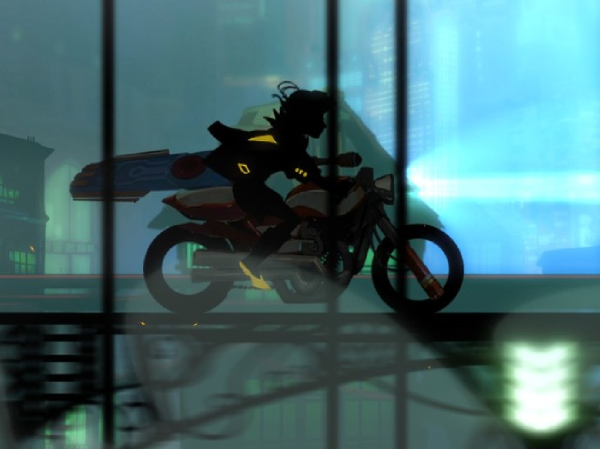Tom's Guide Verdict
Innovative gameplay and beautiful art and music make “Transistor” a must-play for a variety of gamers.
Pros
- +
Unique combat system
- +
Beautiful cyberpunk-inspired art
- +
Strong voice acting and music
Cons
- -
Hack-n-slash aspects are slow and frustrating
Why you can trust Tom's Guide
Something is rotten in the city of Cloudbank, and Red, a popular singer turned voiceless fugitive, is caught in the middle of it. Red's only defense from the robotic hordes called the Process (and the other threats the city hides) is the Transistor, a talking weapon with a mysterious past.
Available for Steam for PC and PlayStation 4 (with other platforms to follow), "Transistor," by indie studio Supergiant Games, is the rare game that's as challenging as it is beautiful.
Gameplay
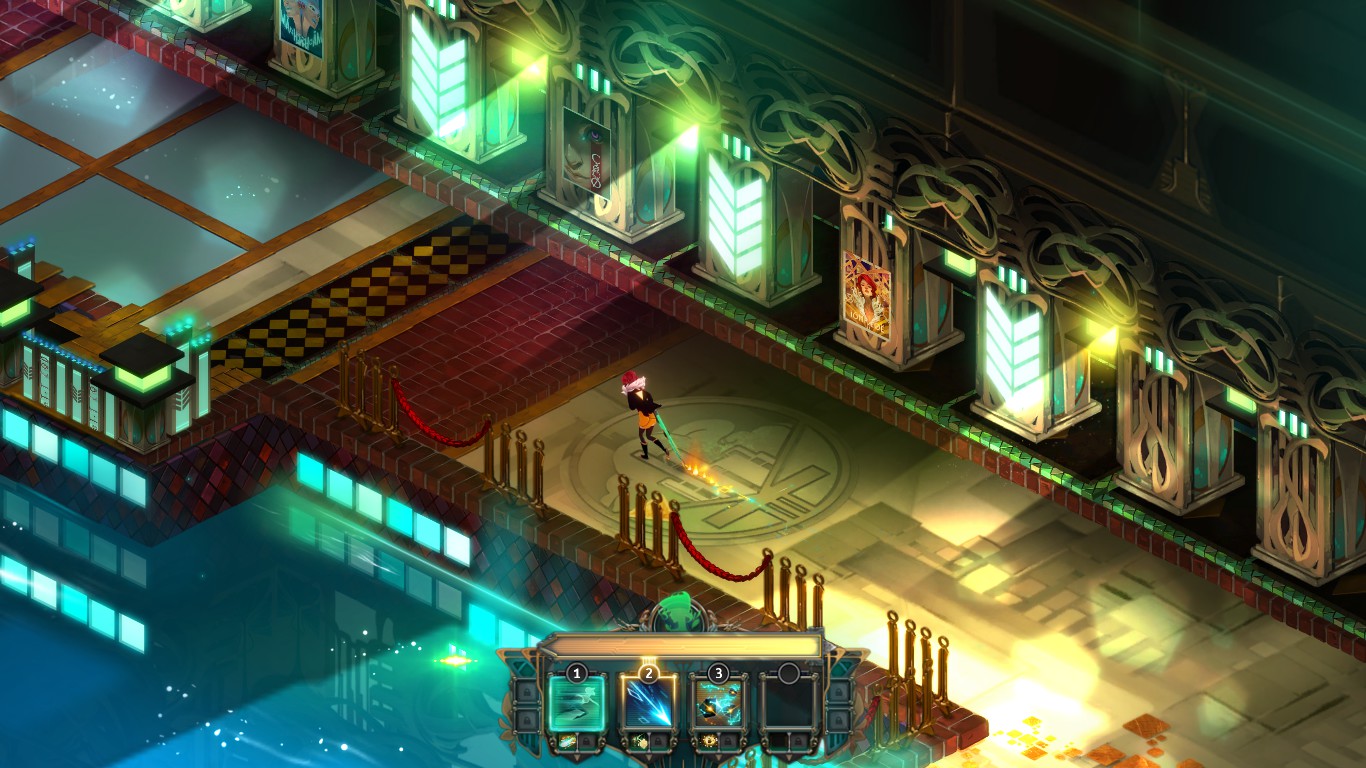
"Transistor" is all about crafting and structuring attacks in deliberate, elegant combinations to sweep enemies away. If that sounds too cerebral, there's a good amount of hack-and-slash mixed into the strategy.
The Transistor acquires a variety of moves, or Functions, starting with a fast short-range burst called Crash and a slower long-range blast called Breach. Think of Transistor as hardware; it can "install" up to four Functions at once, which can be used by pressing assigned buttons.
Any Function can also be installed as a modifier to another function to create different attacks, or as a passive modifier to grant Red various status boons.
You can use these attacks in real-time, but Red is slow and unwieldy with her giant weapon. That's where the strategy comes in.
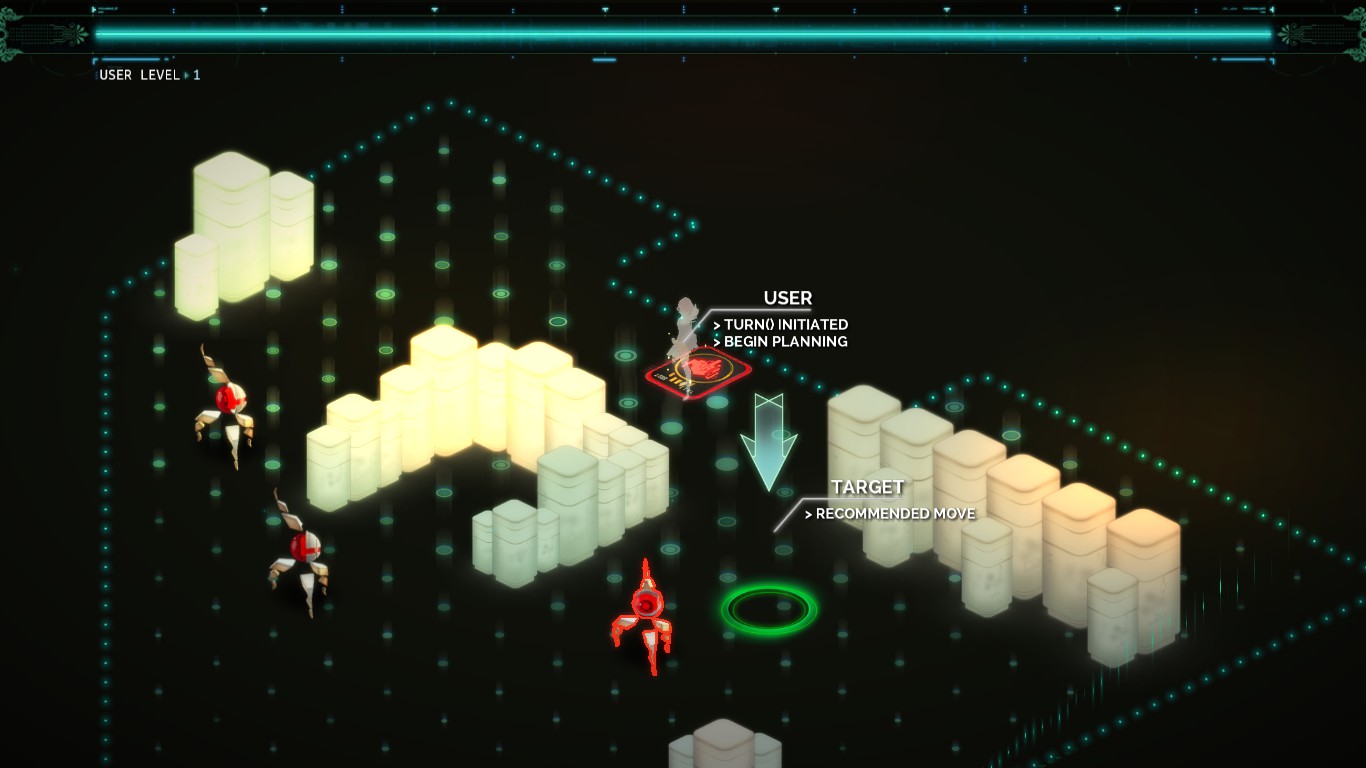
Red can freeze time, giving her a "planning mode," a window of time to position herself and string together attacks. An action bar indicates how much time is left. Different moves take up different amounts of time, so you'll want to try different combinations, taking into account the environment and enemies’ speed before executing your plan.
This is complicated at first, but with a few fights and a few Functions under your belt, this twist on the gaming genre known as "turn-based strategy" becomes incredibly rewarding.
Once your turn is complete, there's a brief reloading period before your next turn. These "real-time" moments are chaotic and frustrating compared to the cool precision of the turns; you can do little more than dodge (via a Function called Jaunt) and wait for the planning-mode bar to reload. You'll always want to have Jaunt equipped as a main Function, as without it Red is a sitting duck.
Battles earn Red experience points, which increase her level and unlock new Functions. Players can also use "Limiters," settings that increase the Process's strength as well as Red's experience points.
Playing from a top-down perspective, players wend their way through Cloudbank City, fighting Process and other enemies and piecing together the secrets that Red and the Transistor carry. For an extra challenge or a break from the game's forward motion, visit a challenge arena called the Backdoor to earn extra experience points.
Story
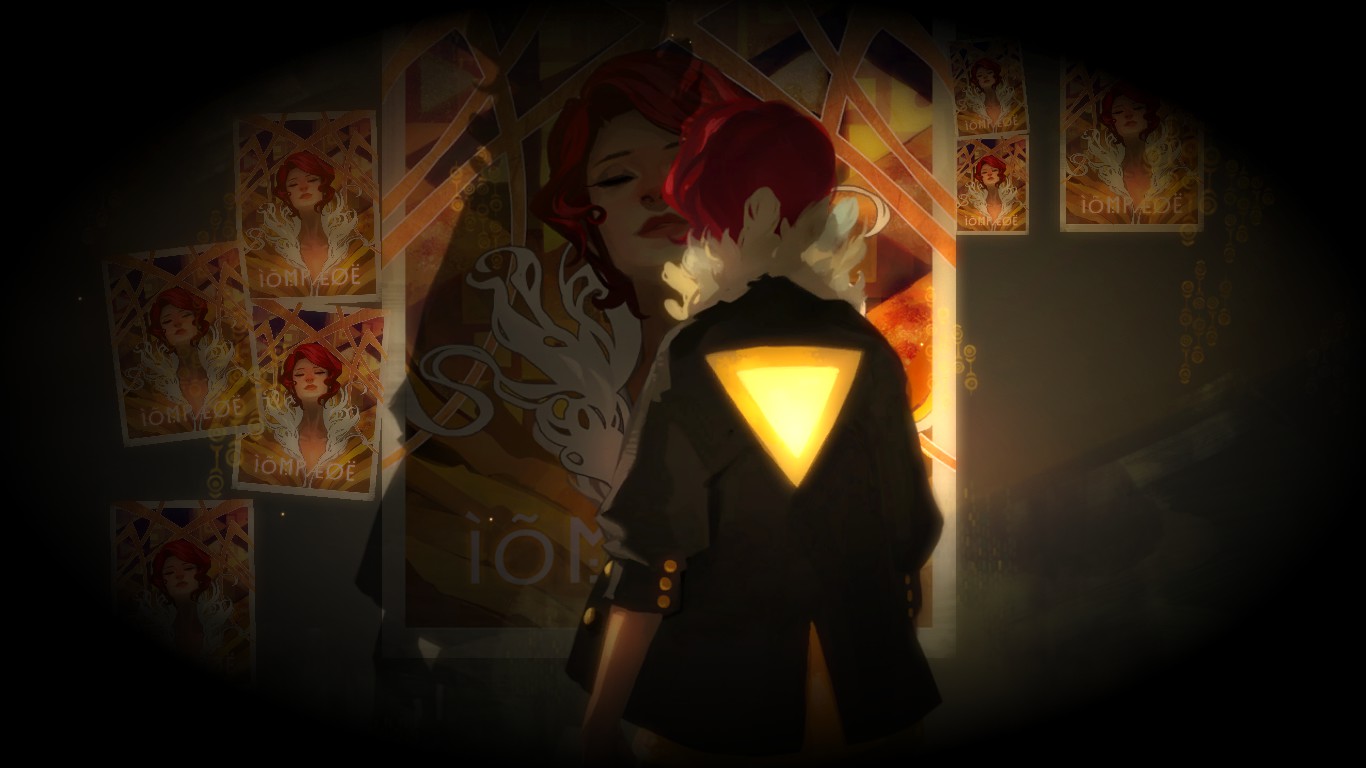
"Transistor" is a story in which the main characters know what's happening long before the player does. It starts "in medias res" (in the middle of things) with Red, a former singer now robbed of her voice, pulling the Transistor out of a dead man's body. From there, the game leaps quickly into Red's flight from the Process, an army of robots attacking the city of Cloudbank.
Red herself was a popular singer before the game began, but her music's political undertones displeased other factions in the increasingly unstable city.
Much of the story is communicated via Transistor's commentary as Red makes her way through the city. Transistor speaks to her as an old friend, one familiar with Cloudbank and its many issues. Players need to listen carefully and remember every detail in order to piece together Transistor's identity and relationship to Red.
Art and Audio
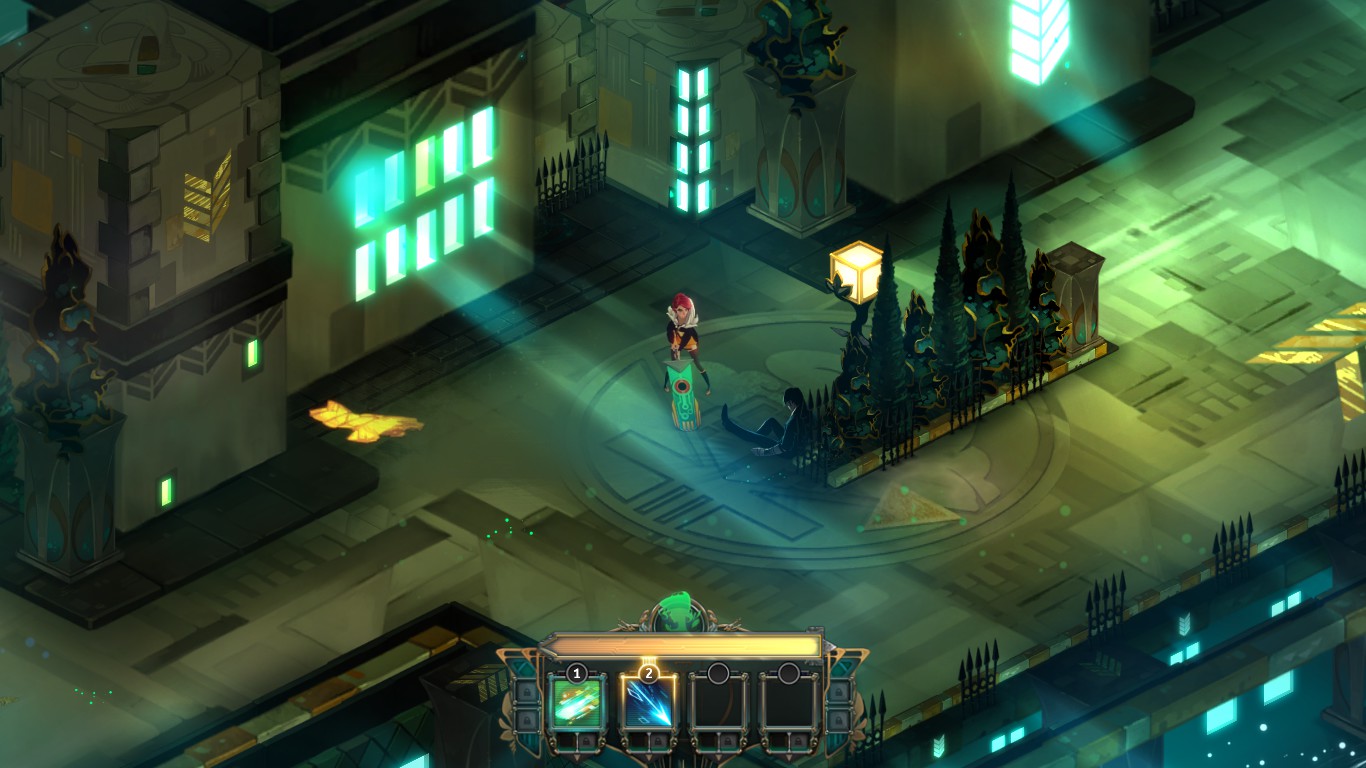
"Transistor" echoes Supergiant's first game, the 2011 adventure game "Bastion," with its isometric layout and visual style that blends the solid lines of comic book art and the gentle hues of watercolor.
The environments have all the trappings of a science-fiction future. You'll rarely see anything alive other than Red herself; her red hair shines brightly against the gray-brown city and teal holographic detailing. But the city's earthen tones and Process's curved edges have an organic feel all their own.
The game's soundtrack more than does its singer-protagonist justice, blending techno and jazz to create rich, atmospheric tones. Red's own voice often joins in, as her music plays an important part in the story. It's only at such times that we hear her voice, making these moments particularly moving.
Punctuating the deep soundscape is Transistor's own expressive voice, which sets the emotional tone for each scene.
Bottom Line
Ever since Supergiant's critically acclaimed first game "Bastion" came out in 2011, fans have been eager for the studio's sophomore title. "Transistor" does not disappoint.
The music, art, unique combat system and beautifully unfolding story alone would each have made "Transistor" an enjoyable game. Together, they create a unique and delightful experience that will appeal to a wide variety of gamers.
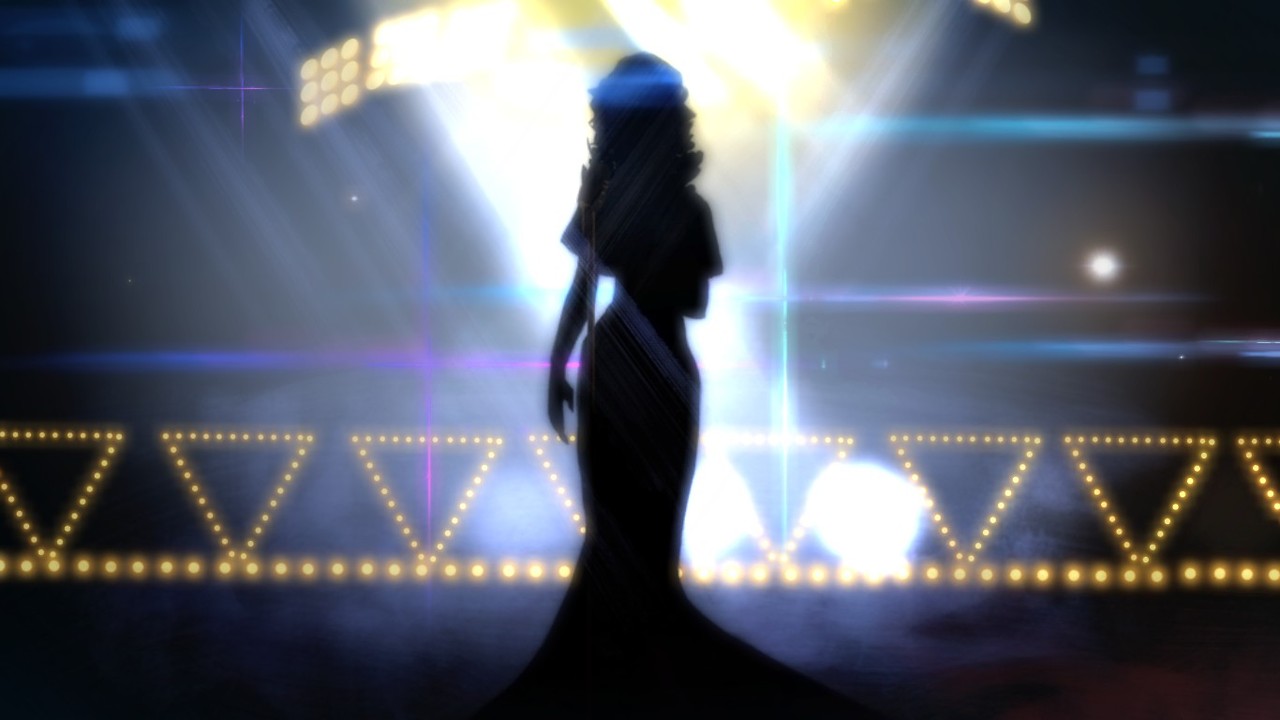
Email jscharr@techmedianetwork.com or follow her @JillScharr and Google+. Follow us@TomsGuide, on Facebook and on Google+.
● 10 Great Indie Games Coming to Xbox One
Jill Scharr is a creative writer and narrative designer in the videogame industry. She's currently Project Lead Writer at the games studio Harebrained Schemes, and has also worked at Bungie. Prior to that she worked as a Staff Writer for Tom's Guide, covering video games, online security, 3D printing and tech innovation among many subjects.
